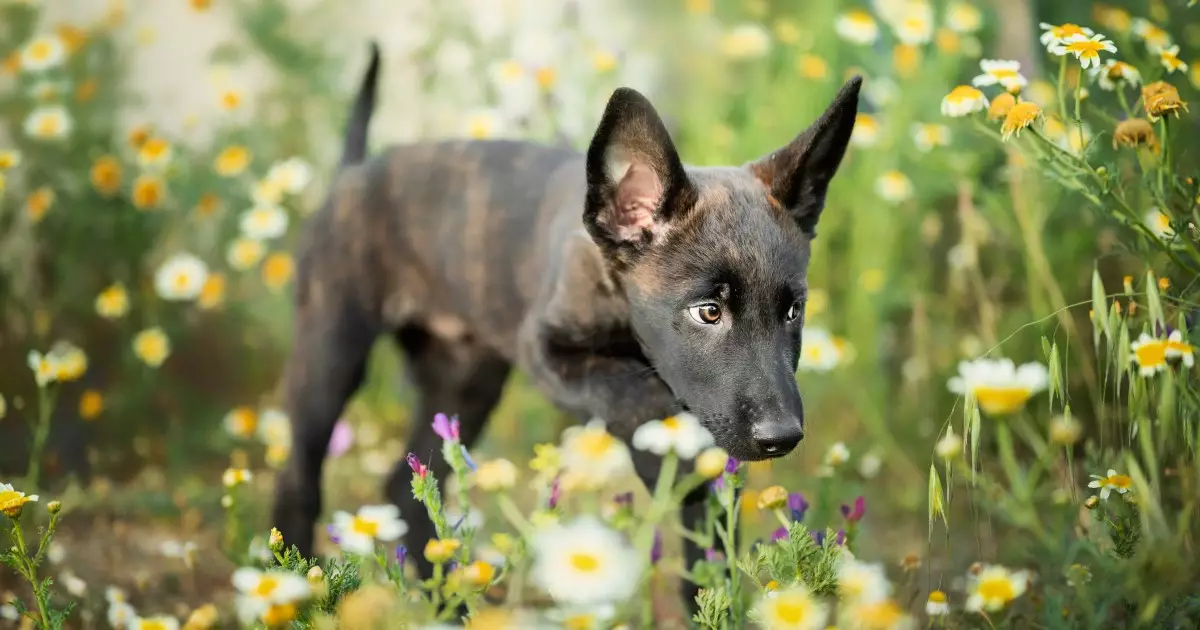Dutch Shepherd puppies hail from the picturesque landscapes of the Netherlands and embody a rich history that speaks to their versatility and adaptability. Originally bred as herding dogs, they swiftly became invaluable companions on farms, managing sheep, cattle, and even pulling carts to local markets. Their physical prowess, combined with their gentle demeanor, makes them extraordinary companions. The breed’s development traces back to the late 1800s when the need for an agile and intelligent working dog became paramount in agricultural communities.
As time passed, these dogs transitioned into more varied roles, evolving from mere livestock guardians to essential members of law enforcement and assistance services. Their amazing capacity for learning and adaptation has made Dutch Shepherds not just a breed of interest to farmers but to dog lovers across the globe.
Beneath the Surface: Distinctive Characteristics
At first glance, Dutch Shepherds may remind one of German Shepherds due to their striking appearance and size. However, what sets them apart is their unique brindle coat, which can be traced back to a breed standard established in 1914. Initially, they were recognized in a range of colors, but the shift to brindle was a thoughtful decision aimed at preserving the individuality of the breed. Their coat not only exhibits beauty but also reflects a rich genetic lineage.
Typically, Dutch Shepherds stand between 21 to 25 inches tall and weigh between 50 to 70 pounds, making them robust yet agile. It’s easy to misinterpret their size as intimidating, but those who foster relationships with these dogs quickly learn that they are not just gentle giants; they are spirited, friendly, and highly trainable.
The Joy of Training and Socialization
Many prospective dog owners might shy away from adopting larger breeds, fearing potential behavioral issues and difficulty in training. However, Dutch Shepherds challenge preconceived notions in this regard. Their intelligence shines during training sessions, making it easy to teach them new commands and tricks. These pups thrive on mental stimulation and routine exercise, so incorporating training into daily activities proves not just beneficial but also enjoyable.
Socialization is key in nurturing a well-rounded dog, and with Dutch Shepherds, this is especially true. Exposing them to various environments, stimuli, and other pets at an early age lays the groundwork for confidence and adaptability. Though their history is rooted in agricultural tasks, advancing into the realms of agility competitions and canine sports highlights the breed’s excelling nature when given appropriate outlets for their energy.
A Resilient Breed with a Comeback Story
One of the most compelling aspects of the Dutch Shepherd breed is its incredible resilience. Nearly facing extinction in the mid-20th century due to modern farming changes and the devastating impacts of World War II, their fate took a positive turn thanks to dedicated enthusiasts and breed clubs aiming to revive and sustain the breed. This turnaround is a testament to their adaptability and the affection they can bring to households.
Understanding their history adds layers of appreciation for these loyal companions. As they transitioned from being practical farmhands to beloved family dogs, Dutch Shepherds have proven their worth time and again. Their durability and ability to serve in various roles are a hallmark of the breed’s character and promise for potential owners.
Health and Well-Being: A Commitment to Care
Taking on a Dutch Shepherd puppy brings responsibilities that extend well beyond just companionship. Regular exercise is crucial, as these active dogs thrive when they can expend their energy in safe, open environments. While they are healthy overall, prospective owners should remain vigilant about common health issues such as hip dysplasia and progressive retinal atrophy, particularly as these conditions can be prevalent in larger breeds.
Beyond physical activity, grooming varies based on coat type. Long-haired and wire-haired variants require more attention, making it essential for owners to incorporate grooming into their routine to prevent matting and ensure a healthy coat. Ensuring your Dutch Shepherd is physically and mentally nurtured paves the way for a long, fulfilling relationship.
Dutch Shepherds represent more than just another breed in the canine realm; they encapsulate a spirit of resilience, intelligence, and warmth. Offering companionship, versatility, and an undeniable charm, Dutch Shepherd puppies can bring joy and assist in enriching the lives of their human companions, transforming ordinary households into vibrant homes full of love and activity.

